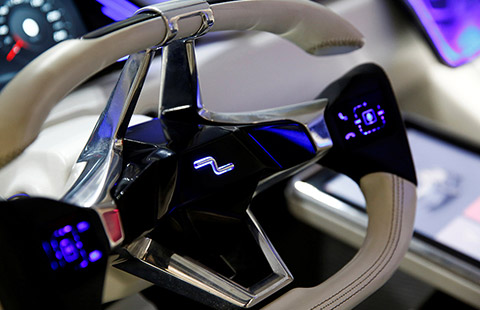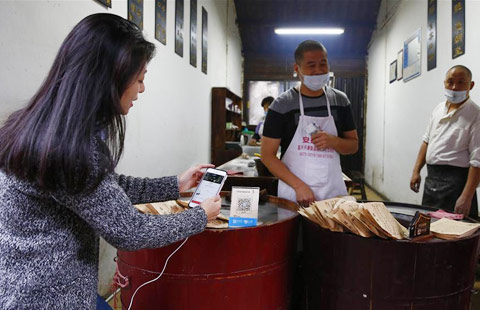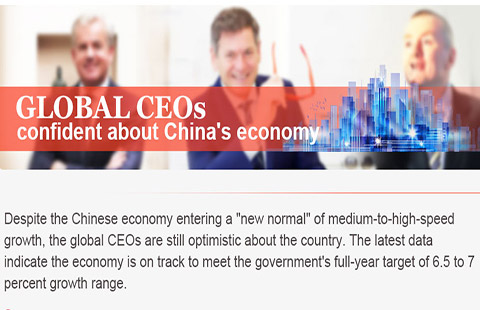Risks to economy 'can be managed'
Leverage refers to the use of borrowed money.
Stephen Green, chief China economist at Standard Chartered Bank said "for an economy with an already high leverage level - some 150 percent of GDP during most of the 2000s - the 're-leveraging up' increases overall macro risk".
He said many financial crises are foreshadowed by an increase in leverage. "Even a mild deterioration in credit quality could be severely damaging to China."
Peng Xingyun, a senior researcher at the Chinese Academy of Social Sciences, said he expected credit growth to reach 16 percent in 2013 while M2 is likely to increase by 15 percent year-on-year, to "achieve a good balance between supporting economic growth and curbing inflation".
Chen Yuyu, a professor at Peking University, said using the outstanding M2 to measure whether an economy's money supply is too large is not a solid enough approach.
"Instead, we should look at the growth rate of M2, and the ratio of M2 to GDP, as prices of goods and services will be determined by people's purchases in a certain period."
The ratio of M2 against GDP at the end of 2012 stood at a record high of 188 percent. According to the World Bank, the global average was 126 percent. China ranked 10th globally.
Monetary authorities seemed wary of the potential risks caused by excessive liquidity, as it surprised the market several times last year by declining to lower interest rates and reserve requirement ratio for banks when the CPI dropped and economic growth hit a three-year low.
December saw M2 increase 13.8 percent year-on-year, down from the 13.9 percent increase recorded for the month before, and lower than the central bank's target of 14 percent.
"We find that the current monetary conditions are still slightly tighter than the policy rule we calculated. If using the same targets on growth and inflation set last year, China's M2 target could be set at around 13 percent this year," said the Australia and New Zealand Banking Group Ltd in a report.
But against a backdrop of global easing, analysts forecast the economy will face tough challenges in 2013 as accelerating capital inflows will spur inflation, asset bubbles, and increase pressure on the national currency to further appreciate.
The State Administration of Foreign Exchange said earlier in a statement that capital inflows could increase further this year as global liquidity has improved due to policy easing by major economies, and interest rates remain low.
The US and Japan said that they would continue their near-zero interest rates and inject more liquidity into the markets through asset-purchase programs to shore up economic growth. Easy monetary policies within global central banks and improving global growth prospects will continue to drive capital flows to most Southeast Asian economies, ANZ said.
wangxiaotian@chinadaily.com.cn























